In his previous films like ‘Man Push Cart’ and ‘Goodbye Solo,’ Iranian-American filmmaker Ramin Bahrani explores the immigrant experience in the US. ‘The White Tiger,’ based on the eponymous Booker Prize-winning novel by fellow Columbia University alumnus Aravind Adiga, lets him shift the landscape and still tell a story of a man’s snarling pursuit of freedom, individuality, and happiness.
Like the source material, the film is riddled with numerous apt and delectable metaphors that not only enunciate the inherent satire of the plot but also unflinchingly portray the underbelly of modern India, which is perpetually trapped in the stark dichotomy between old traditions and new-age beliefs. The title of the film refers to a rare animal born only once in a generation. The retrospective narrator of ‘The White Tiger,’ Balram Halwai (Adarsh Gourav), was always meant for great things, and the film essentially shows how he reaches his destination. SPOILERS AHEAD.
The White Tiger Plot Synopsis
The story is told in an epistolary manner as Balram, now a successful entrepreneur, pens a letter to the Chinese Premier, Wen Jiabao. Like most epic tales told in the Indian subcontinent, it begins in the Heartlands, in the district where Buddha found enlightenment. India is in the process of almost seamlessly transforming its casteist ideas into classist ones. Balram, an academically gifted student, is born in a family of cooks and sweet-makers.
It has been implanted in his mind that he has been bred to serve the people of the upper tier of society. He impresses a school inspector, who is the first person that draws a comparison between Balram and a white tiger, and earns an opportunity to study in Delhi. However, his sly and money-hungry grandmother (Kamlesh Gill) promptly pulls him out of school and puts him to work at the same tea shop where his brother works.
Balram’s initial indoctrination in his individuality and personal freedom was orchestrated by his father. Bound by his own fate of servitude and abject poverty, Halwai Sr. wanted at least one of his sons to find his way out of their circumstances. As Balram describes it, there are two sides of India: people who live in the darkness and those who live in the light. After his father’s death due to tuberculosis, Balram is forced to grow up even faster. He quickly realizes that his path to salvation lies with the local landlord, the Stork (Mahesh Manjrekar), and his family.
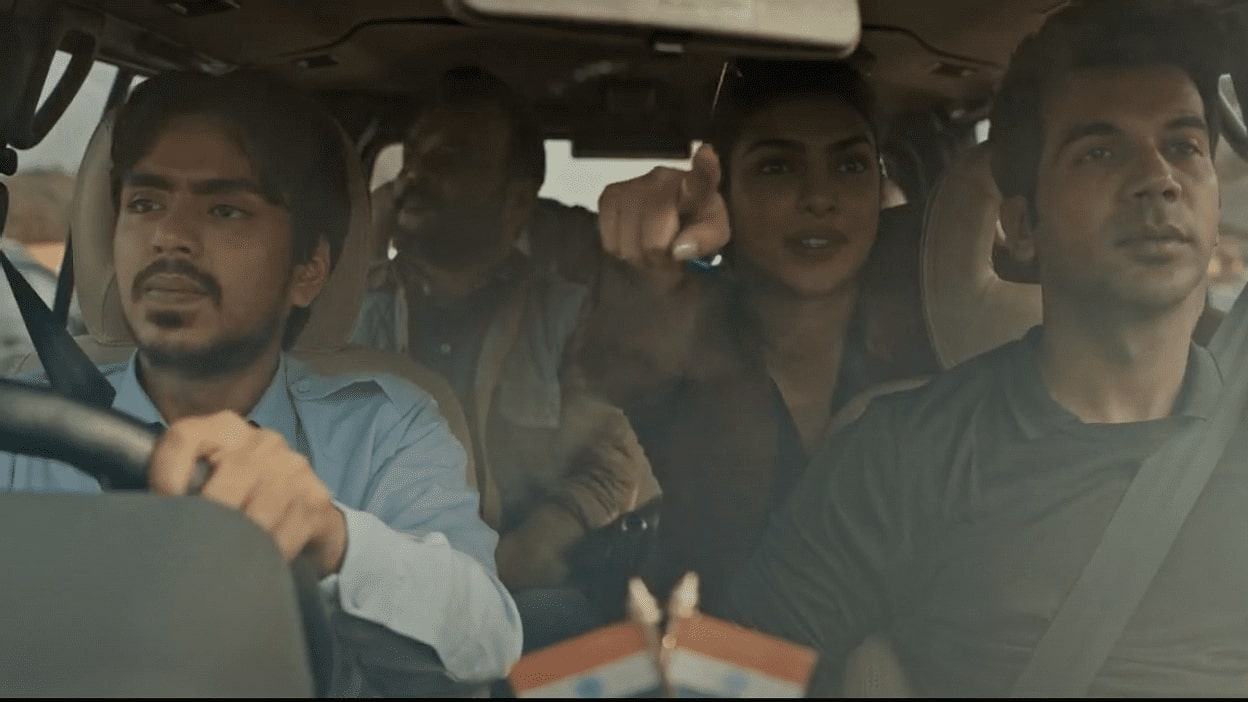
After arriving in Dhanbad, where the Stork’s family resides, Balram convinces them to hire him as a driver for their youngest son, Ashok (Rajkummar Rao), and his Indian-American wife, Pinky (Priyanka Chopra Jonas). The dynamics between these three characters drive the primary storyline in the film. The US-educated Ashok represents India’s urban upper-caste youth, for many of whom casteist prejudice is still very much coursing through their veins. With Pinky, it’s much more subtle. Hailing from an immigrant, working-class family, she is often outraged by how her in-laws treat Balram.
But, at the same time, she dismisses Balram’s separate, individual existence with as much nonchalance as the rest of them. Balram warns the Chinese Prime Minister that his story is going to get darker before it actually does. On the night of her birthday, an intoxicated Pinky runs over a child in the poor parts of the town. Balram assures Ashok that he will take care of it. After all, he wants to please his master and smile “the contented smile that comes to the lips of a servant who has done his duty by his master.”
It is only when he is told by the Stork and his older son, the Mongoose, that he has to take the blame for the hit-and-run incident that we start to see him shed his meek and smiling personality and the white tiger emerging from within. Although Balram is later informed that he doesn’t have to take the fall as no one has reported the child’s death, he has already become disillusioned enough that he has started to steal from his masters with impunity. That anger and frustration eventually manifest in calculated violence and lead Balram through a twisted path to liberation.
The White Tiger Ending: Why Does Balram Kill Ashok?
As mentioned above, the relationship between the three main characters is the driving force behind the film. After the hilarious and venal Chief Minister (Swaroop Sampat) threatens the Stork, the latter decides to send his sons to Delhi to fund her opponents. Ashok and Pinky are left there with Balram to visit the central government’s top ministers and bureaucrats with a red leather bag full of cash. The wide-eyed innocent Balram is quickly charmed by the seemingly kind and considerate treatment from Ashok and Pinky. He expected unrelenting servitude and wasn’t prepared for this hint of compassion.
The landlords of the Heartlands were rigorously portrayed, both as heroes and villains, in the Bollywood soap-operatic films between the 1970s and 1990s. In ‘The White Tiger,’ Bahrani portrays the Stork and the Mongoose with an amount of impotent menace that only knows how to strip the people below them of basic dignity and aspiration. Although Ashok, whom Balram refers to as the Lamb, is not that vile or petty, he is entrapped in his own sense of privilege. Even Pinky, for all her impoverished background and American upbringing, can’t begin to comprehend the level of poverty that Balram hails from.
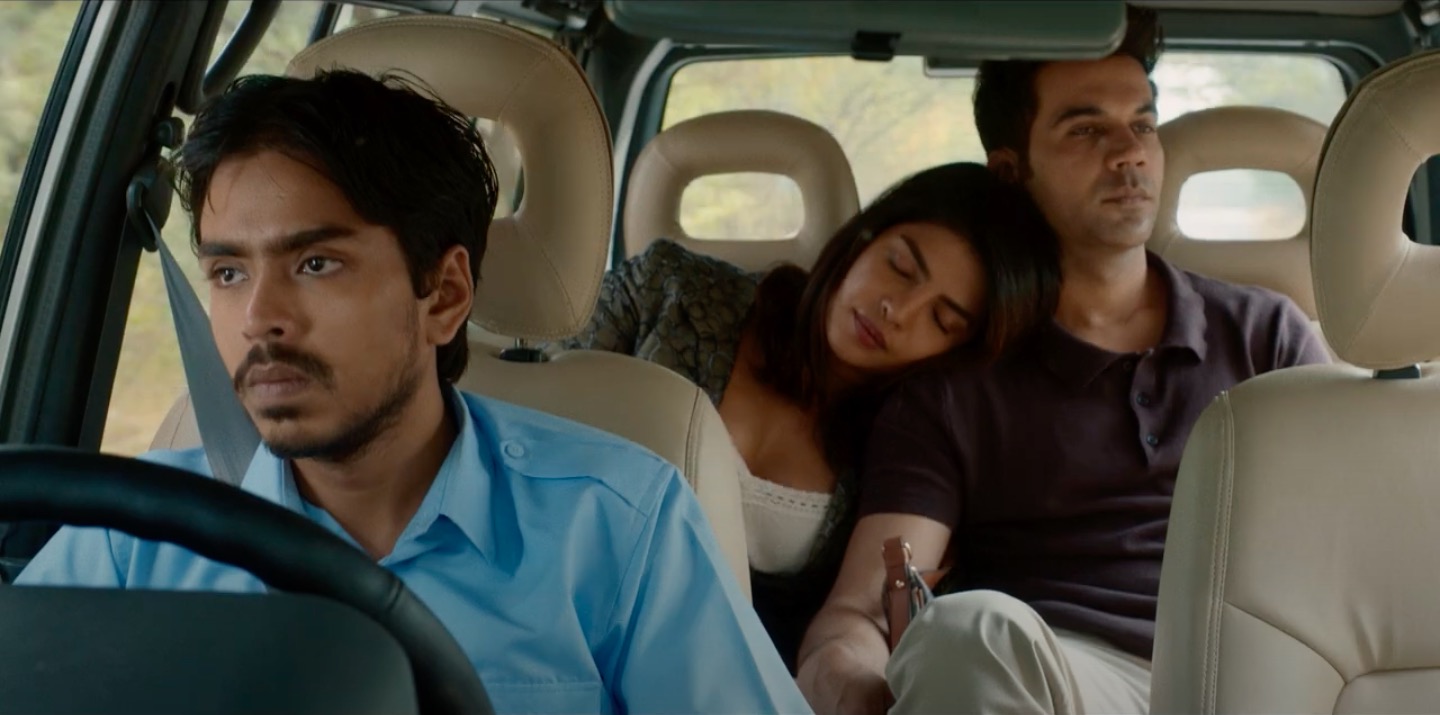
From the moment the inspector came to his school and singled him out, Balram has harbored a deeply rooted desire for greatness. He was the only student picked to go to Delhi, giving him the belief that he is destiny’s child, the one who is fated to break the mold of his rigid society and find success. Even when his education is snatched away by the actions of his grandmother, he never loses that dream and eventually convinces her to fund his driving lessons with the only thing that really matters to her: the prospect of a steady supply of money.
Not long after Balram arrives in Delhi, he learns about Bangalore, the city which will be his next destination. He is imbued with an innovative and brilliant entrepreneurial spirit. But he doesn’t understand its full potential until he is freed from the last remnants of responsibility towards his master. He serves Ashok and Pinky diligently and takes their abuse with a smile. When he is ordered to take the blame for the hit-and-run incident, the servant mentality has become so ingrained in him that he can’t protest or even bargain for a better deal. Indeed, he is trapped in a chicken’s coop: “They can see and smell the blood; they know they are next, and yet they don’t rebel.”
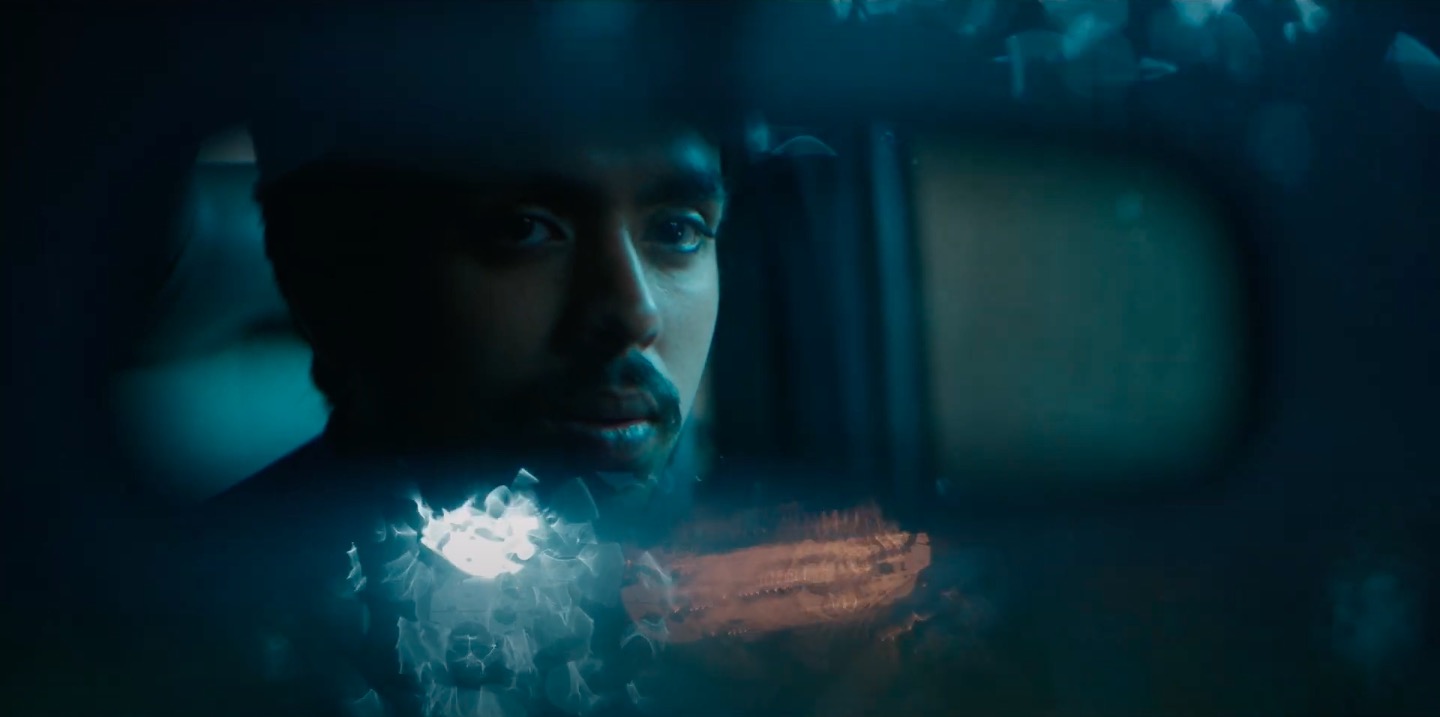
From that profound hopelessness, a sense of self-worth begins to take root inside of Balram. When he is told that he doesn’t have to accept responsibility for the accident any longer, he is relieved, but the ardent devotion that was previously present in him is now gone. He now fully intends to take advantage of his master. After Pinky leaves Ashok, and the latter begins to wallow in self-pity, Balram starts doing the questionable things that he would have reproved earlier. He gives Ashok false invoices for car repairs while pocketing the money himself and steals petrol from the car to sell it to other drivers.
The tipping point comes for Balram when he discovers that Ashok is looking to replace him. “Do we loathe our masters behind a façade of love,” he asks in the letter, “or do we love them behind a façade of loathing?” He watches time and again as Ashok walks into the governmental buildings with the red bag and knows what exactly is inside. On that fateful day, Ashok carries four million rupees in cash to be delivered to the newly re-elected Chief Minister, “the Great Socialist.” In a night when the sky seems to have opened up, Balram drives the car to a remote place, lies about the wheels, and when Ashok steps out, Balram kills him with a broken bottle.
Bahrani builds the scene with so much foreshadowing that it imparts a notion of finality when the moment actually arrives. At the beginning of the film, Balram candidly writes to Wen Jiabao that the police have been searching for him, and now we know why. While visiting the zoo with his nephew, Balram sees a white tiger restlessly pacing in its cage. That’s the moment of an epiphany for him. The tiger is restive because it keeps the animal sane inside its cage. Similarly, Balram is raging inside his own prison. He realizes that if he wants to obtain his freedom, he has to kill Ashok. He faints just as he comes to that conclusion.
Is Balram’s Family Killed?
Although Balram writes to Wen Jiabao that he doesn’t know if his family has been killed in retribution, it is heavily implied that they have, perhaps, been killed in the same manner that he envisions earlier. In the Bangalore part of the film, there is a scene in which he reads the news about the murders of 17 members of a single-family. For Balram, this is ultimately an acceptable sacrifice. After his father’s death, for which he blames his grandmother, he gradually severs all tangible connections with his family, seeing them as a source of overburdening duties.
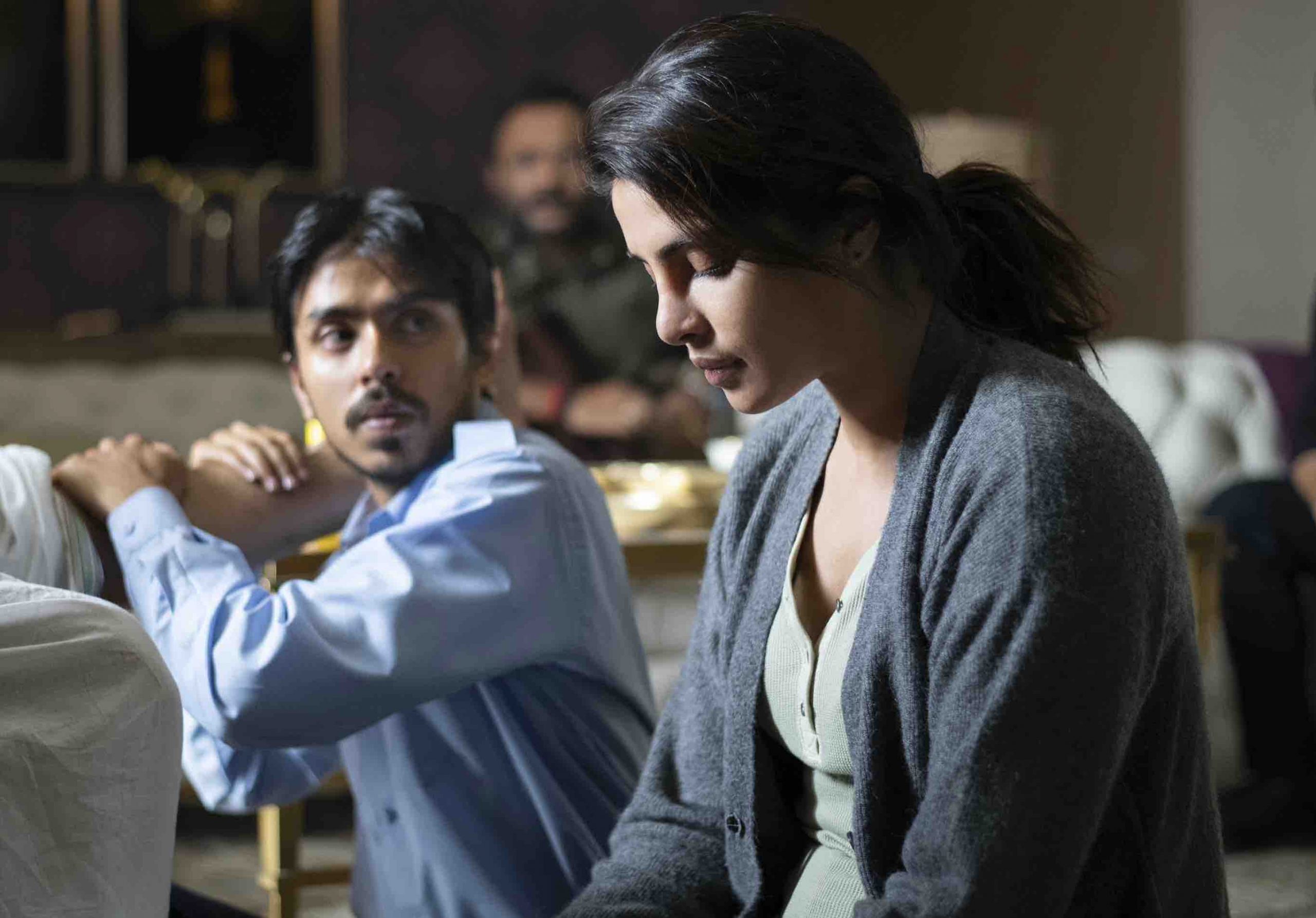
According to Balram, India used to have thousands of castes in the past. Now, there are only two: those with the big bellies and those with the small ones. After moving to Bangalore and establishing a successful cab service, this urbanized and ponytailed version of Balram falls into the latter category. He has managed to fulfill his father’s dream and makes it to the light from the darkness. He has even saved his nephew, the only member of his family that he could. He has nothing but utter contempt for the rest and has no problem viewing their deaths as collateral damage.
What Lies Ahead for Balram?
As Balram states at one point in the film, there are two ways in India to leave behind the poverty you are born with: politics and crime. He chooses the latter. The film offers a biting commentary on the Indian brand of socialism, epitomized by “the Great Socialist.” She seems like a caricature of every mass leader that has come up in the last 50 years.
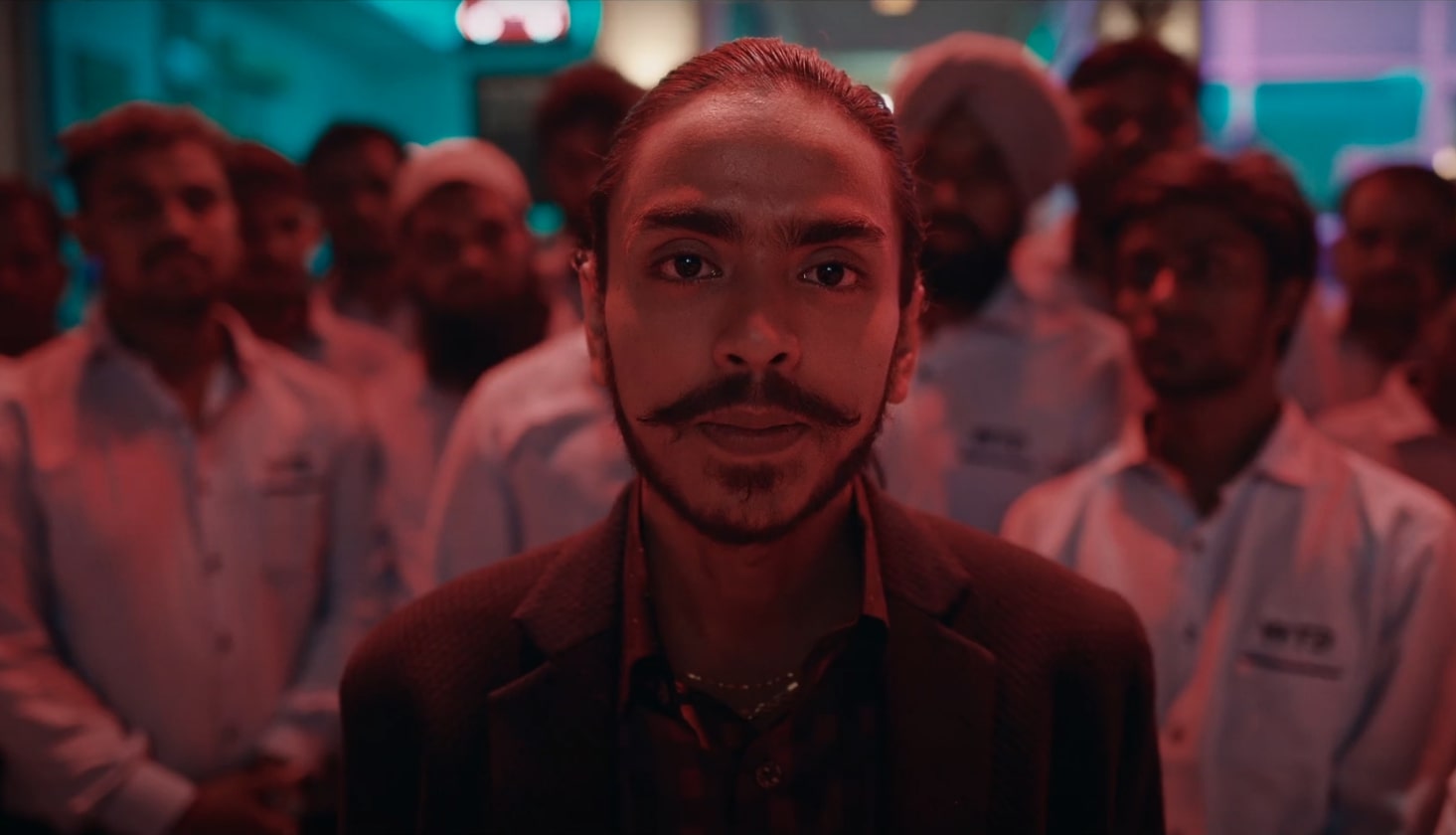
Ultimately, with some of the money that Balram “borrowed” from Ashok, he bribes an IPS officer in Bangalore to ensure that his competitors will be removed from the streets and sets up his company with inherently capitalistic ideals. He sees the employees of White Tiger Drivers as just that, employees. He deals with any problem in his business personally and doesn’t let a subordinate suffer for it.
Balram personifies the uninhibited ambition of modern India. “It’s the century of the brown man and the yellow man,” he declares after meeting Wen Jiabao and revealing his plans about venturing into real estate, “and God save[s] everybody else.” Because Balram easily assimilated into the colossal Indian servant class, he hasn’t been caught yet. He doesn’t have much remorse about the act of killing itself, as it enabled him to leave his circumstances behind.
However, he does lament that it had to be Ashok. Perhaps, with a nickname like the Lamb, he was always meant to be killed by the tiger to satiate his growing belly. Even if Balram is ever caught, neither the authorities nor the people like the Stork can take away these experiences of freedom and individuality from him. The more he rises the social ladder, the more invulnerable he will become. The Stork and Mongoose might find him one day, but by then, he will likely be in a position where they can’t do anything to him.
Read More: Is The White Tiger a True Story?


You must be logged in to post a comment.